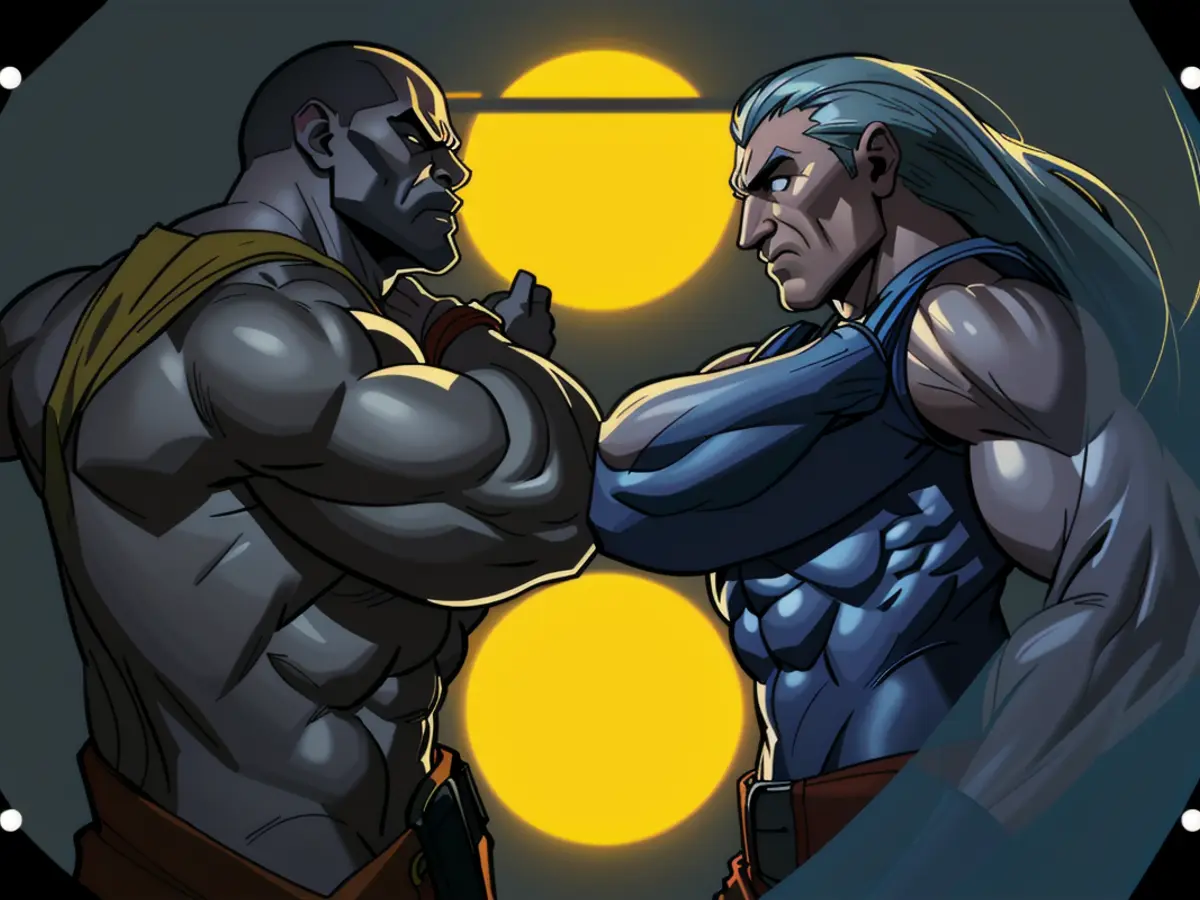Venezuelan leader Nicolas Maduro labels Salvadoran President a chronic offender of human rights.
Venezuelan President Nicolas Maduro isn't mincing words when it comes to El Salvador's President Nayib Bukele, calling him a "serial human rights violator." This accusation stems from Bukele's proposal to swap 252 Venezuelan prisoners, deported from the United States, for alleged "political prisoners" being held in Venezuela.
Maduro was scathing in his criticism during his weekly television broadcast on April 21st, stating, "He is a systematic and serial violator of human rights against Venezuelans." He demanded their "unconditional release" and urged Bukele to provide proof of life, legal processes, and access to lawyers for these detainees. Maduro considered the imprisonment of Venezuelans in El Salvador a "grave crime against humanity."
Earlier in the day, Maduro's Attorney General, Tarek William Saab, echoed these sentiments, demanding "unconditional freedom" for the migrants. Saab accused Salvadoran authorities of ignoring Caracas' "communications" and "judicial appeals." He also argued that comparing Venezuelans held in El Salvador without a process to those arrested for attempted assassination attempts or kidnapping in Venezuela was unwarranted.
The background of this controversy is complex. In February 2023, Bukele posted videos showing mass transfers of alleged gang members, including Venezuelan members, to the newly built Terrorism Confinement Center (CECOT), where they have faced alarming allegations of human rights violations. These detainees were not arrested in El Salvador but were deported from the U.S. under the Alien Enemies Act.
By March 2025, the prison had gained infamy due to claims of severe human rights violations, including arbitrary detention and poor conditions affecting both Salvadoran and Venezuelan detainees. Amnesty International has reported El Salvador’s systematic policy of massive and arbitrary deprivation of liberty, with more than 85,000 people detained for years without sufficient admissible evidence. The organization also documents enforced disappearances of 261 individuals linked to these policies and denounces the cooperation between the U.S. and El Salvador as repressive and violative of international law.
The conditions in CECOT reportedly involve severe restrictions, forced head shaving, and other degrading treatment. These practices, combined with the alleged use of the judicial system for repression rather than impartial justice, have raised concerns about inhumane and degrading treatment. The legal appeal framework is also challenged, complicating detainees' ability to seek redress locally. Internationally, there is growing pressure on both governments to respect human rights norms. The U.S. faces criticism for its role in deporting Venezuelan migrants to a facility known for harsh treatment and lack of due process.
In summary, under Nayib Bukele's administration, Venezuelan prisoners in El Salvador's CECOT prison have faced significant human rights violations, and legal recourse remains limited due to El Salvador's judicial practices and the transnational nature of the deportations. This situation represents a serious human rights crisis with ongoing international concern.
- Venezuelan President Nicolas Maduro, during his television broadcast, accused El Salvador's President Nayib Bukele of being a "systematic and serial violator of human rights against Venezuelans."
- Maduro's Attorney General, Tarek William Saab, echoed these sentiments, demanding "unconditional freedom" for Venezuelan migrants in El Salvador.
- Amnesty International has reported El Salvador’s systematic policy of massive and arbitrary deprivation of liberty, with more than 85,000 people detained for years without sufficient admissible evidence.
- The conditions in El Salvador’s Terrorism Confinement Center (CECOT), where Venezuelan prisoners are held, involve severe restrictions, forced head shaving, and other degrading treatment.
- Internationally, there is growing pressure on both governments to respect human rights norms, as the situation in El Salvador's CECOT prison represents a serious human rights crisis with ongoing international concern.










